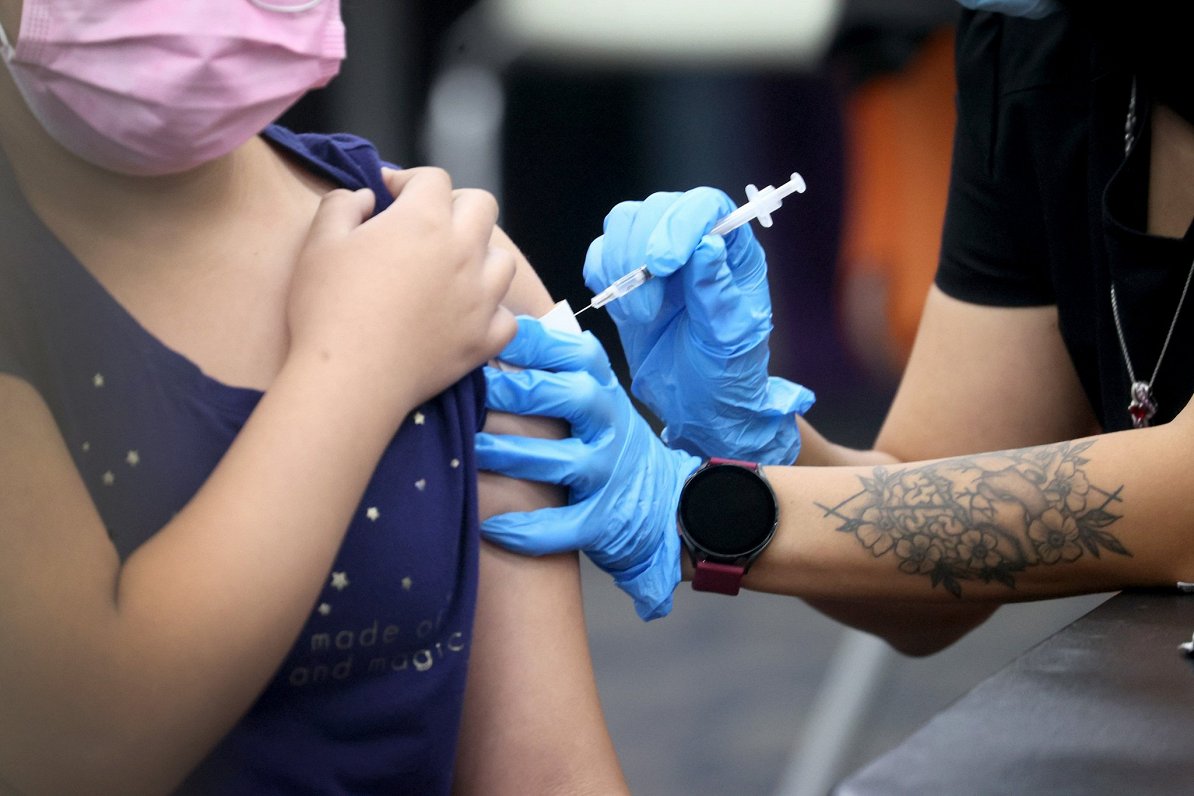1. Can all children get the vaccine?
On the basis of studies published by the World Health Organization and the European Medicines Agency, and with a view to strengthening immunity and reducing the risks of disease, every child aged at least 5 years may receive the vaccine.
2. What is the difference between the vaccine for children and for adults?
In children aged 5 to 11 years, the 10 microgram Comirnaty vaccine is used, whereas in people aged 12 and over, the dose is 30 micrograms. The children's dose is three times smaller and labeled in an orange color.
3. How can I apply for children's vaccination?
Vaccination of children will take place at family doctor practices and medical treatment institutions. A parent or legal representative may apply by contacting a family doctor, a medical treatment institution or by calling the phone number 8989. Vaccination must take place in the presence of a parent or other legal representative. The following documents will need to be presented: passport or identity card of the child and the parent, guardian or legal representative, as well as a document certifying parenthood or legal representation of the child (entry in passport, birth certificate, or notarized authorization).
4. Where will the vaccination take place?
Family doctors' practices and medical treatment institutions have been selected for the vaccination of children aged 5 to 11 years. When applying, make sure that the vaccination point contains the vaccine intended for children.
5. Should the child be vaccinated against Covid-19 if he/she has chronic illnesses?
Vaccination is primarily needed in children with already existing health problems such as oncological diseases, obesity, diabetes, cardiovascular background diseases and other chronic diseases.
6. Where to turn if there are doubts about vaccination?
If there is any doubt, or if a child has, for example, some chronic illness, a visit to a family doctor or treating physician is encouraged before the vaccine to discuss the individual health of the child and the related issues.
7. When will children be able to receive the second dose of the vaccine?
Children, unlike adults, are advised to have a longer interval between doses, which is 3 months. If, for some reason, a child is required to receive a second dose earlier than the prescribed time, this is acceptable according to the registration of the vaccine (the registered interval between doses is 21 days).
8. My child is about to be 12 years old, which dose of vaccine is he/she supposed to receive?
The dose size is based on the child's age on the day of the first dose vaccination. If the child turns 12 between doses, both doses will be children's doses.
9. Can a child be vaccinated against Covid-19 if another vaccine has been recently received?
Covid-19 vaccines may be administered in both children and adults at the same time as other vaccines, on the same day or at any interval before and after.
10. Does a child need to be vaccinated if he/she has recovered from Covid-19?
In order to ensure maximum protection against Covid-19, it is recommended that children who have recovered from Covid-19 (confirmed by a positive PCR test result in the medical documentation) should also be vaccinated. In this case, one dose of vaccine is sufficient.
11. Why do children have such a long time interval between the two doses of vaccines?
In children aged 5 to 11 years, the individual protection capacity following a single dose of mRNA vaccine is considered essential and temporarily sufficient to prevent moderate and severe symptoms and hospitalization. On the basis of studies and information based on other countries' experiences, one dose also provides considerable efficacy in addressing both asymptomatic and mild cases. The optimal protection of the first dose is considered to be 14 days after administration of the vaccine.
12. What reactions can children have after the vaccine?
Children may experience the same reactions after receiving the vaccine as adults: redness, swelling or pain in the injection site, fever, fatigue, feeling sick, dizziness, headache, nausea, vomiting. These symptoms disappear within a few days (1-3 days) and no treatment is required.
13. What should I do if symptoms persist for more than 3 days?
If you notice that symptoms do not disappear within three days after receiving the vaccine, please contact your family doctor.
14. What guarantees the safety of the vaccine?
Any Covid-19 vaccine, including the vaccine for children used in the European Union, must comply with strict requirements for quality, safety and efficacy, just as with any other medicinal product. No derogation from these essential requirements is possible. The vaccine used in both children and adults is safe and tested.
15. When and how will children get certificates?
The vaccination certificate for children aged 5 to 11 will be issued on the 15th day following the second dose of the vaccine. The parent or legal representative of the child will be able to download it from the covid19sertifikats.lv site.
For more information please consult the official Latvian Covid-19 information website: https://covid19.gov.lv/en
































